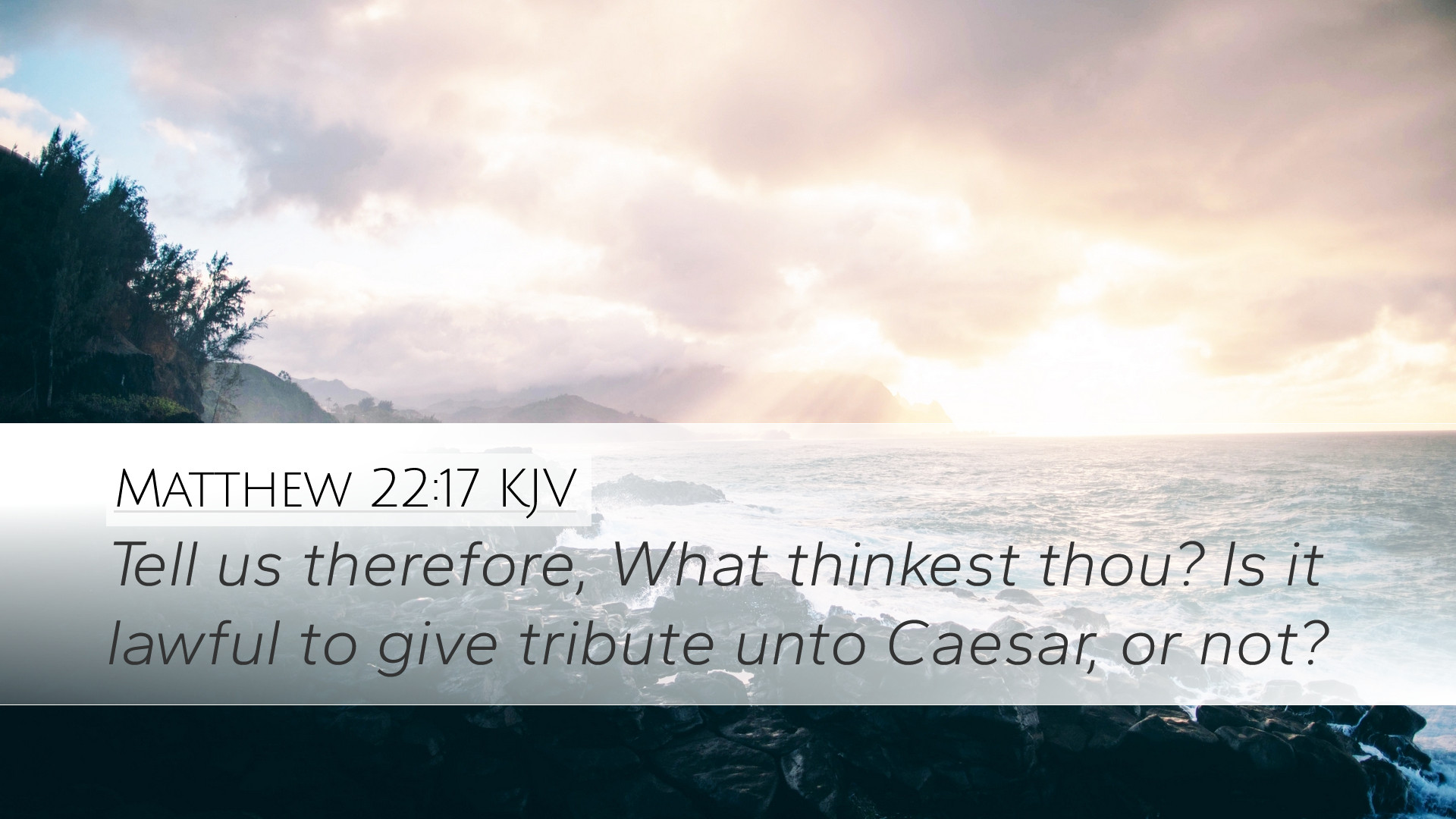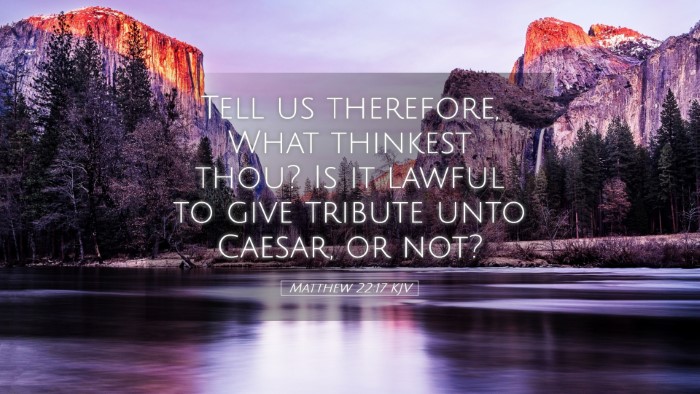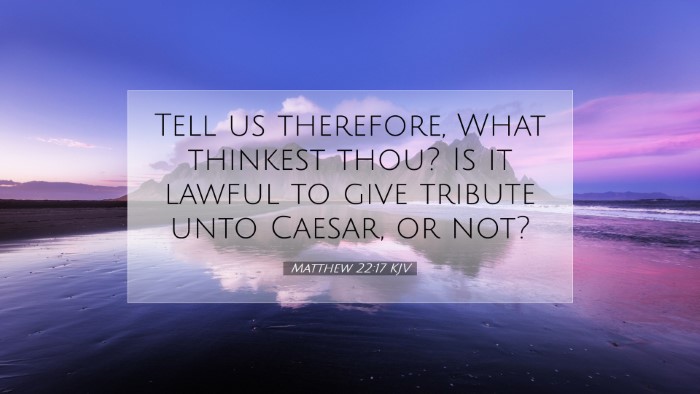Commentary on Matthew 22:17
Verse Reference: Matthew 22:17 - “Tell us, therefore, What thinkest thou? Is it lawful to give tribute unto Caesar, or not?”
Contextual Overview
The passage in Matthew 22:17 occurs during the final days of Jesus' earthly ministry. It is set within the context of increasing hostility from the religious leaders who sought to trap Jesus with difficult questions. This verse specifically raises the issue of tributes, which was a contentious topic among the Jews who were under Roman occupation.
The Attempt to Trap Jesus
According to Matthew Henry, the Pharisees, along with the Herodians, aimed to entangle Jesus in His words. Their question regarding the lawfulness of paying taxes to Caesar was not merely to seek wisdom but to place Jesus in a political predicament. If Jesus affirmed the payment of taxes, they could accuse Him of being unpatriotic and undermining Jewish nationalism. Conversely, if He denied the lawfulness of paying tribute, they could bring Him before the Roman authorities as an insurrectionist.
Examining the Nature of the Question
Albert Barnes provides insight into the gravity of the question posed to Jesus. The term "tribute" (or "tax") referred specifically to the Roman census tax, which was a heavy burden and a symbol of oppression for the Jewish people. The choice presented to Jesus was both a legal and ethical dilemma reflective of the broader conflict between earthly authority and divine law. Jesus' response would need to weigh the implications of allegiance to both God and the governing authorities.
Understanding Jesus' Response
Jesus’ reply, that one should "render therefore unto Caesar the things which are Caesar’s; and unto God the things that are God’s" (Matthew 22:21), is pivotal. Adam Clarke elaborates that Jesus acknowledges the legitimate authority of the state while simultaneously asserting the supremacy of God’s rule. This response underscores both Jesus' wisdom and His refusal to be coerced into a binary choice that could misrepresent His mission.
Theological Implications
This interaction highlights the balance Christians must maintain between civic responsibilities and spiritual obligations. Matthew Henry emphasizes that while believers should engage in worldly affairs, they must do so in a way that recognizes God's sovereignty and ultimate claims over their lives. This balance becomes central for pastors and theologians in instructing believers on their role in society.
Application for Today’s Believers
For modern believers, the question posed to Jesus remains relevant. It urges self-examination about civic duties and the heart's allegiance. Albert Barnes notes that in an age of political tension and social upheaval, Christians are called to navigate their responsibilities, aligning their actions with both scripture and conscience. This call to faithful citizenship requires wisdom and discernment, echoing the complexities faced by Jesus during His ministry.
The Challenge of Cultural Engagement
As believers engage with contemporary issues, they face the challenge of aligning their faith with culture. Adam Clarke reminds us that Jesus did not shy away from cultural truths but rather transcended them. His own actions showed respect for authority while promoting a kingdom that transcended worldly systems. Thus, today's believers are encouraged to affirm the truth of their faith while also participating in societal structures thoughtfully and intentionally.
Conclusion
Matthew 22:17 serves as both a historical record and a profound theological reflection on authority, duty, and faith. This encounter encourages believers to examine their commitments and responsibilities within the dual spheres of church and state, always recognizing that their ultimate loyalty lies with God. Matthew Henry succinctly encapsulates the heart of this passage, urging readers to engage with the world without sacrificing their heavenly citizenship.


